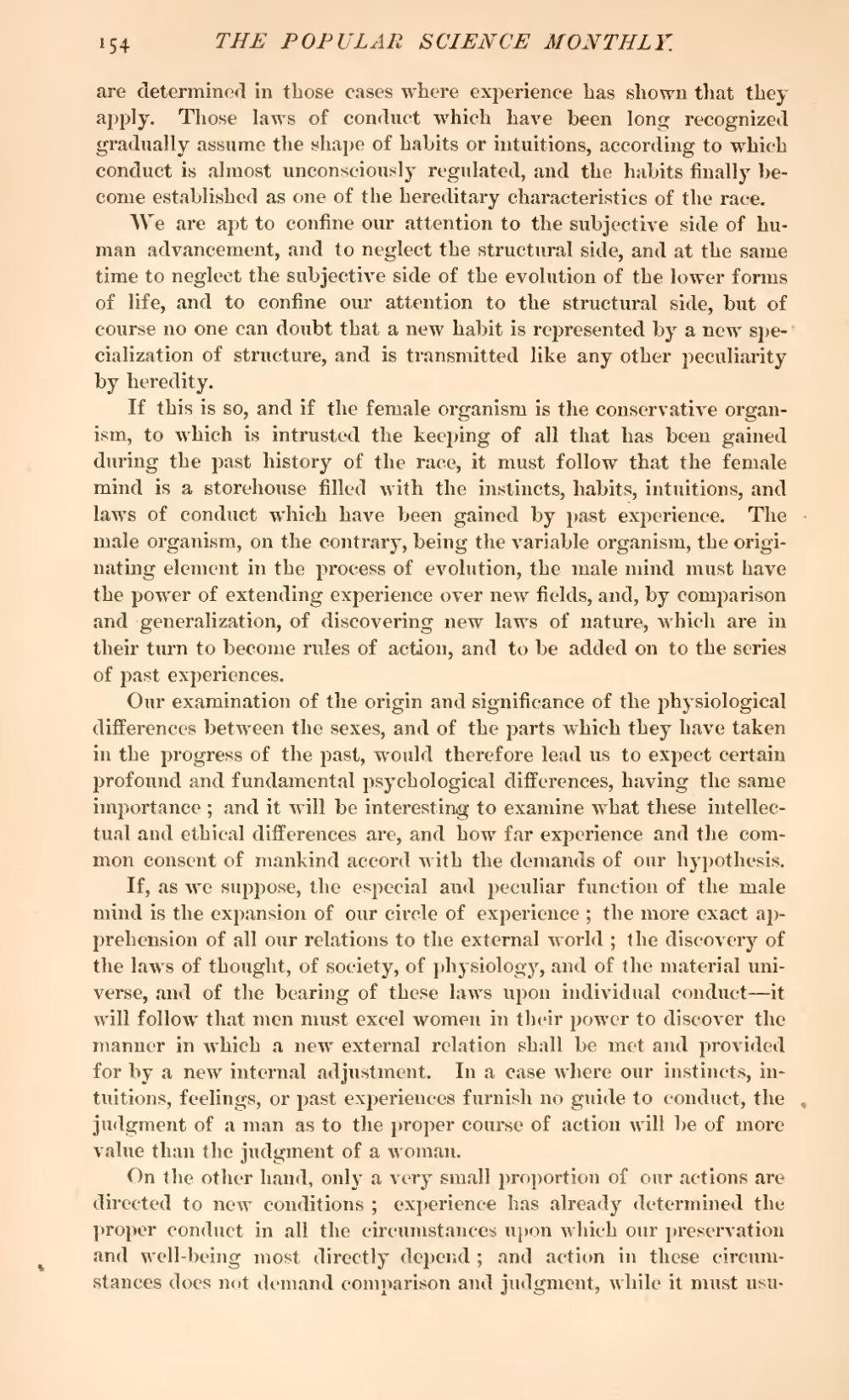are determined in those cases where experience has shown that they apply. Those laws of conduct which have been long recognized gradually assume the shape of habits or intuitions, according to which conduct is almost unconsciously regulated, and the habits finally become established as one of the hereditary characteristics of the race.
We are apt to confine our attention to the subjective side of human advancement, and to neglect the structural side, and at the same time to neglect the subjective side of the evolution of the lower forms of life, and to confine our attention to the structural side, but of course no one can doubt that a new habit is represented by a new specialization of structure, and is transmitted like any other peculiarity by heredity.
If this is so, and if the female organism is the conservative organism, to which is intrusted the keeping of all that has been gained during the past history of the race, it must follow that the female mind is a storehouse filled with the instincts, habits, intuitions, and laws of conduct which have been gained by past experience. The male organism, on the contrary, being the variable organism, the originating element in the process of evolution, the male mind must have the power of extending experience over new fields, and, by comparison and generalization, of discovering new laws of nature, which are in their turn to become rules of action, and to be added on to the series of past experiences.
Our examination of the origin and significance of the physiological differences between the sexes, and of the parts which they have taken in the progress of the past, would therefore lead us to expect certain profound and fundamental psychological differences, having the same importance; and it will be interesting to examine what these intellectual and ethical differences are, and how far experience and the common consent of mankind accord with the demands of our hypothesis.
If, as we suppose, the especial and peculiar function of the male mind is the expansion of our circle of experience; the more exact apprehension of all our relations to the external world; the discovery of the laws of thought, of society, of physiology, and of the material universe, and of the bearing of these laws upon individual conduct—it will follow that men must excel women in their power to discover the manner in which a new external relation shall be met and provided for by a new internal adjustment. In a case where our instincts, intuitions, feelings, or past experiences furnish no guide to conduct, the judgment of a man as to the proper course of action will be of more value than the judgment of a woman.
On the other hand, only a very small proportion of our actions are directed to new conditions; experience has already determined the proper conduct in all the circumstances upon which our preservation and well-being most directly depend; and action in these circumstances does not demand comparison and judgment, while it must usu-
